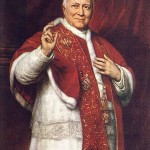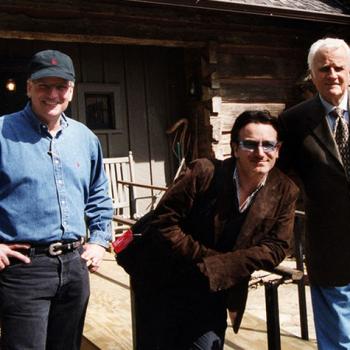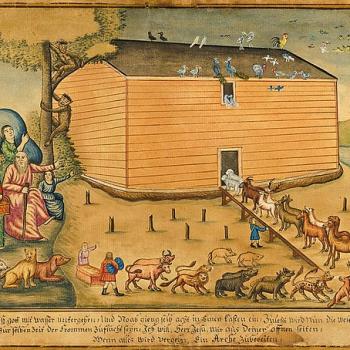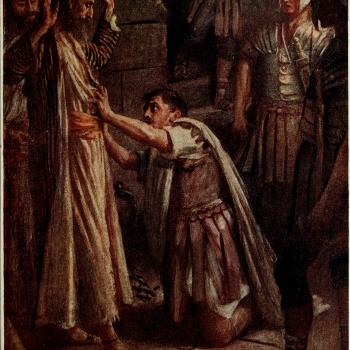Rodney Stark begins his chapter on the Dark Ages with an important observation: “For many Western intellectuals, the Fall does not refer to the fate of Adam and Eve, but to the fate of civilization after the collapse of Rome.” Stark goes on to argue that the idea of the medieval era being a time of superstition and ignorance does not measure up to close or even remote scrutiny. It is in fact more the creation of Renaissance and Enlightenment thinkers who had self-interested reasons for denigrating medieval Europe.
One could easily turn Stark’s quip into an observation about some contemporary Christian and conservative intellectuals: “For these thinkers, the Fall does not refer to the fate of Adam and Eve, but to the fate of civilization after the rise of modernity.” The modern period, one dominated by technology, social mobility, free markets (and consumption), and transgressive culture, is for too many (in my estimation) Christian cultural critics the time when humanity showed the real consequences of the fall.
Listen, for instance, to the blurb for Norman Wizba’s book, From Nature to Creation which links environmental degradation to the hegemony of science and the predominance of thought that excludes theology and philosophy:
The very moment we humans have become the single most decisive force of nature itself is the moment that creation beloved of God has been eclipsed as the heart of our relationship with all that exists. Yet as commercialized nature and utilitarian thinking poison the planet and change the climate, what could be more important than ‘creation’ as the gracious way we live? No one is better than Wirzba in describing modernity’s idolatrous and disastrous course and offering a Christian understanding of creation as the antidote.
Aside from explicit rejections of modernity, another popular phrase among Christian pundits that somehow shows how impoverished we are compared to earlier times is “human flourishing.” Here’s another random example of how the modern world comes up very short compared to earlier times when concern for divine things was prominent:
Concern for human flourishing is at the heart of Christian proclamation. Theologians have long proclaimed that the very heart of a Christian’s hoped-for future, which comes from God, is the flourishing of individuals, communities, and our whole globe. Yet the centrality of this concern and hope has been undermined in a culture where accounts of human flourishing have been caught in secular tides redirecting interest from the transcendent God to human beings and their mundane affairs and replacing love of God and neighbor with a self-defeating concern for the self and the desire for experiential satisfaction.
In both of these cases, Christians would have us believe that prior to Descartes, Voltaire, Thomas Paine, Charles Darwin, Karl Marx, and indoor plumbing your average person (in the West?) was living what — a harmonious, contented, and devout life? What would happen if critics of modernity pondered more the state of human society not so long after the fall (and well before the internal combustion engine)?
The LORD saw that the wickedness of man was great in the earth, and that every intention of the thoughts of his heart was only evil continually. And the LORD regretted that he had made man on the earth, and it grieved him to his heart. So the LORD said, “I will blot out man whom I have created from the face of the land, man and animals and creeping things and birds of the heavens, for I am sorry that I have made them.” But Noah found favor in the eyes of the LORD. (Genesis 6:5-8 ESV)
So too, the apostle Paul who knew nothing of federal highways or reality TV shows, seemed to think that humanity wasn’t capable of flourishing anytime after the Fall. In fact, it was just the opposite:
For his invisible attributes, namely, his eternal power and divine nature, have been clearly perceived, ever since the creation of the world, in the things that have been made. So they are without excuse. For although they knew God, they did not honor him as God or give thanks to him, but they became futile in their thinking, and their foolish hearts were darkened. Claiming to be wise, they became fools, and exchanged the glory of the immortal God for images resembling mortal man and birds and animals and creeping things. (Romans 1:20-23 ESV)
Interesting that these idolaters that Paul has in mind were fairly in touch with nature, not tarnished by the distance from creation that modernity encourages. But that awareness of nature could not prevent people from worshiping trees or stars.
All of which is to say that the bigger problem we face is not modernity but the wickedness of the human heart. That is a circumstance that afflicted medieval Europe as much as the Jazz Age. Critics of modernity have good grounds to be concerned about disregard for the natural world, what social media does to friendship, what easy credit does to self-restraint. But to make it seem like humanity was swimming along quite nicely until the modern world screwed up a world that knew and revered God is to disregard the very account of human beings the Bible gives. Odd that so many of the Christian critics of modernity appeal to Scripture.












